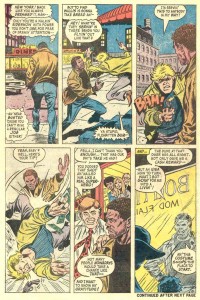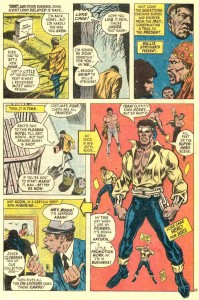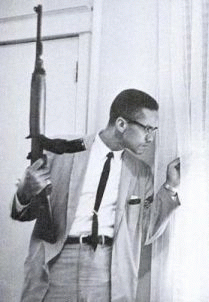
Sleeping Dogs: A Hong Kong Movie Homage That Keeps It Real About Race
September 17th, 2012 Posted by david brothersI’ve been playing Square Enix & United Front’s Sleeping Dogs off and on over the past week. (Tekken Tag Tournament 2
is taking up some time, too, as is Papa & Yo.) It’s the latest game in the True Crime series, sort of. Those games have generally been pretty okay, but not spectacular. This one isn’t spectacular, but I think it might be genuinely good, bordering on great. The story isn’t special — an undercover cop in too deep? with a grudge? and an attitude?! whoa!– and the gameplay isn’t particularly innovative, but the combination of a faithful recreation of the Hong Kong we see in movies and some pretty smart writing elevates it above most other sandbox games. It’s not on Saints Row the Third‘s level, but it’s definitely beating the pants off that last GTA.
Sleeping Dogs juggles a lot of disparate gameplay elements (cars, counter-centric combat, good/evil alignment, two upgrade systems, several types of unlocks, etc) very well, and the pacing is sharp enough to keep you from getting bored. But more than anything, it’s the writing that’s keeping me going. The script is predictable, almost to a fault, but it’s a script that is emulating one of the types of movies that I like best. I mean, I’ve had speedboat chases and a shootout in a hospital with an AI partner. United Front knows their target audience, and it looks like we’re running through all the greatest hits. Which is cool; a nice cocktail of nostalgia and imminent danger.
There was one moment that leapt out at me, and it has nothing to do with John Woo or Johnnie To or Tsui Hark or people getting shot at all, really. It was during the mission Bride to Be, when you’re escorting Peggy Li to go pick out things for her wedding. You play Wei Shen, an undercover cop who has infiltrated Winston’s gang. Peggy’s marrying Winston, and by this point, you’re trusted enough to be alone with her and escort her around town. I was expecting some type of goofy infidelity plot, when they got in the car together and she started talking about dating. Half of it was because one girl I was seeing in-game had just blown up on me about cheating on her (which I hadn’t realized I was doing because Sleeping Dogs loves ambiguous fadeouts) and the other half was that crime movies love plots like that.
But that didn’t happen. She didn’t hit on Wei, and Wei didn’t hit on her. Instead, Peggy and Wei talked about dating, finding a nice girl, the importance of family, and knowing the value of trading your hardness for softness. Peggy shared a story about her mother-in-law, and explains that she learned, despite being a huge grump, her mother-in-law really cares about her. Wei offhandedly mentions his mother’s disappointment in his choice of girlfriends, and how that was a point of contention between them.
Quickie transcript, which is unfortunately devoid of inflection:
Wei: You’re lucky. My mother never liked my girlfriends.
Peggy: I guess it’s hard for the moms.
Wei: Well… I mean, you know I used to have a thing for blondes too, and that drove her crazy. Bad enough if I went out with a Chinese-American girl, but… but a whitey?
Peggy: [laughs] Well, it’s good to know she was loyal to her people.
Wei: No, she’s loyal to her prejudices, more like.
Peggy: That too.
I’m not sure what the term for this is, there might not be a proper word for it, but I dig it every time I come across it. I feel like it’s so rare in entertainment these days. It’s an admission that races and cultures are different, and that that fact affects our lives on a day-to-day basis in a way beyond just “one group oppresses another group.” It’s the type of conversation that you’d actually have in real life, and the kind of conversation you only see in fiction when you have an author who is talented and brave enough to just go in and damn the consequences. It’s prickly and it’s tough, but when done right, it really adds to stories.
I saw a preview screening of End of Watch with a friend a few weeks back. (It was good, and the Q&A after with Michael Peña and Natalie Martinez was especially good.) There was a lot of dialogue in there that explicitly addressed the fact that the two main characters were a white guy (Jake Gyllenhall) and a Mexican dude (Michael Peña). Gyllenhall asks what the heck chonies are and makes jokes about how Peña is always inviting him to quinceañeras. Peña is like, “Yeah, but if you marry one of my cousins, you’ll always have a party to go to! ;)” There were a few more exchanges of a similar vein, too.
We all practice this kind of cultural exchange on a minor scale on a regular basis (“Here’s a song my parents grew up with,” for one, “Here’s a home-cooked meal the way my family taught me” for another), and all too often in movies and games, that’s either played for wholly comedic effect or ignored altogether. Rush Hour, the Jackie Chan/Chris Tucker joint, was actually really good about being both funny and pointed, especially when Don Cheadle showed up.
This concept seems small, but it really isn’t. I dunno, I feel like there’s this tendency to sand down the uncomfortable parts of race in entertainment in favor of everyone always treating everyone else as… I don’t know. Normal. But you lose a lot in that. Normal isn’t interesting. Normal isn’t true. You avoid the terrible physical or emotional violence that makes race one of the dumbest concepts on the planet, but you also lose the beautiful cultural differences that make race one of the most amazing things in the world.
Real people have real conversations about how Wes Anderson makes white people movies and how so-and-so is too bougie to hang with you and whether shark fin soup or chitlins are grosser, or whatever whatever. We regularly talk about how our races affect our lives, and not in a pontificating or divisive sort of way, either. I’m talking about in a normal and most likely unexamined sort of way, a matter of fact sort of way. It’s like how people use the word “ghetto” in normal conversation and never address the subtext. It’s knowing that white music is one thing and black music is another, but not letting that stop you from enjoying either.
There’s a fine line to walk here, since you’re going to inevitably be dealing in stereotypes, but stereotypes aren’t bad in and of themselves. It’s how and why they’re applied. Here, Sleeping Dogs applied a stereotype to Wei’s mother, and more importantly, they didn’t condemn that stereotype. There’s an implicit critique in there, yeah — Wei is our character, we’re supposed to identify with him and assume that he’s right and moral. But not a condemnation. More of a “It is what it is,” I think, and an acknowledgement that that was then and this is now.
I’d like to stop being surprised when this happens in casual entertainment, too. I remember when Fred Van Lente & Mahmud Asrar tackled the unspoken complexities of interracial dating in Shadowland: Power Man. It was such a surprise because cape comics have a history of depicting more interracial relationships than intraracial ones, and any comment on interracial relationships was masked and fictionalized by the fact that one person had blue skin or wings or whatever fake thing they had. But, FVL and Asrar’s story was straight up “Yo, people feel some type of way about dating outside your race,” a subject that could easily get you slapped.
You know who’s really, really good at this? At this sort of honesty? Howard Victor Chaykin. For the most part, everyone in his books actually has a race that is acknowledged in the text. His books are filled with blacks, Jews, Irish, Chinese, Japanese, Germans, and more, and that factors into their personalities, setbacks, and lives. Chaykin loves playing with cultures and culture in his work, whether via someone simply mentioning their background or people getting into arguments over things and it coming up. It adds a lot to his work. More people should be willing to shake things up like that.
Anyway, the car chases and bullet time in Sleeping Dogs are on point, too, so give that a look if you get curious. Personally, I’m rolling through the game while wearing the Mr. Black outfit: black suit, untucked white shirt, dirty tie, black sunglasses, and a hope for a better tomorrow. Portrait of the killer as a young man.




